October 8 stands as one of history’s most eventful days, witnessing the rise and fall of empires, groundbreaking discoveries, and moments that shaped our modern world across centuries of human achievement.

Politics and Government Events on October 8
1912 – First Balkan War Begins
Montenegro declared war against the Ottoman Empire, igniting the First Balkan War. This bold move by the small Balkan nation challenged centuries of Ottoman dominance in southeastern Europe.
The declaration sparked a chain reaction that would reshape the region’s political landscape. Other Balkan states quickly joined Montenegro, forming a coalition that would ultimately dismember Ottoman territories in Europe.
1939 – Germany Annexes Western Poland
Nazi Germany formally annexed western Poland, consolidating territorial gains made during the September invasion. This administrative action transformed conquered Polish lands into integral parts of the German Reich.
The annexation marked a crucial step in Hitler’s plan to establish German dominance in Eastern Europe. Polish civilians faced immediate displacement and persecution under the new German administration.
1973 – Greek Parliamentary Transition Attempt
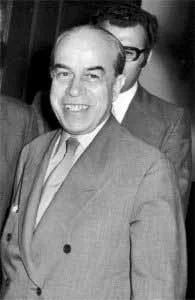
Spyros Markezinis began his brief 48-day term as prime minister in Greece’s failed attempt to restore parliamentary democracy. His appointment represented the military junta’s reluctant effort to legitimize their rule through civilian leadership.
The experiment collapsed within weeks as popular opposition mounted against the military-backed government. Markezinis’s failure ultimately hastened the complete downfall of Greece’s military dictatorship.
1982 – Poland Bans Solidarity
The Polish government officially banned Solidarity and all other independent trade unions under martial law. This decisive action aimed to crush the growing democratic movement that threatened communist control.
The ban drove Solidarity underground but failed to eliminate popular support for democratic reform. The organization’s resilience would eventually contribute to communism’s peaceful collapse in Eastern Europe.
2001 – Office of Homeland Security Established
President George W. Bush announced the creation of the Office of Homeland Security following the September 11 attacks. This new federal agency represented America’s most significant reorganization of national security infrastructure since World War II.
The office coordinated domestic security efforts across multiple government agencies for the first time. Its establishment marked a fundamental shift in American security policy toward preventing domestic terrorism.
Military and Naval History on October 8
1918 – Alvin York’s Heroic Actions
Corporal Alvin C. York single-handedly killed 28 German soldiers and captured 132 others during World War I. His extraordinary marksmanship and tactical skill in the Argonne Forest earned him the Medal of Honor.
York’s actions eliminated a German machine gun position that had pinned down his unit. The Tennessee sharpshooter’s courage became legendary, symbolizing American determination in the Great War.
1941 – German Forces Reach Sea of Azov
German forces captured Mariupol during the Battle of Rostov preliminaries, reaching the Sea of Azov. This strategic victory extended Nazi control deep into Soviet territory along the southern front.
The capture of Mariupol opened vital supply routes for the German advance toward the Caucasus. However, the extended German lines would soon prove vulnerable to Soviet counterattacks.
1944 – Captain Brown’s Medal of Honor
Captain Bobbie Brown earned the Medal of Honor for his heroic actions during the Battle of Crucifix Hill outside Aachen. His leadership under intense fire helped secure a crucial German stronghold.
Brown’s courage during the assault on Nazi-fortified positions exemplified American valor in the final push into Germany. His actions contributed significantly to the eventual capture of Aachen.
1973 – Israeli Tank Losses in Yom Kippur War
Israel lost more than 150 tanks in a failed assault on Egyptian-occupied positions during the Yom Kippur War. This devastating defeat marked one of the conflict’s bloodiest single-day losses for Israeli forces.
The failed attack demonstrated the effectiveness of Egyptian anti-tank defenses and Soviet-supplied weapons. Israeli military planners were forced to completely revise their tactical approaches following this costly setback.
Science and Discovery Milestones on October 8
1970 – Solzhenitsyn Wins Nobel Prize

Aleksandr Solzhenitsyn received the Nobel Prize in Literature for his powerful writings exposing Soviet totalitarianism. His works, including “The Gulag Archipelago,” revealed the horrific reality of Stalin’s prison camps to the world.
The award brought international attention to human rights abuses in the Soviet Union. Solzhenitsyn’s recognition validated the experiences of millions who suffered under communist oppression.
2005 – Kashmir Earthquake

A devastating 7.6 magnitude earthquake struck Kashmir, killing between 86,000 and 87,351 people. The disaster left approximately 2.8 million people homeless across Pakistan and India.
The earthquake’s immense destruction highlighted the region’s vulnerability to seismic activity. International relief efforts mobilized quickly, but the scale of devastation overwhelmed initial response capabilities.
2014 – First U.S. Ebola Death
Thomas Eric Duncan became the first person diagnosed with Ebola in the United States to die from the disease. His death in Dallas intensified fears about the virus’s potential spread in America.
Duncan’s case exposed critical gaps in American hospital preparedness for infectious disease outbreaks. His death prompted immediate improvements in medical protocols and emergency response procedures.
Cultural and Arts Events on October 8
1982 – Cats Opens on Broadway

The musical “Cats” premiered on Broadway after its successful London run, beginning an extraordinary theatrical journey. The Andrew Lloyd Webber production would captivate audiences for nearly 18 years.
The musical’s innovative staging and memorable songs revolutionized Broadway entertainment. “Cats” became one of the longest-running shows in Broadway history before closing in 2000.
1962 – Der Spiegel Publishes Controversial Article
German magazine Der Spiegel published an explosive article revealing the poor state of the Bundeswehr military. The publication faced immediate accusations of treason from government officials.
The article sparked a major political crisis known as the “Spiegel Affair,” challenging press freedom in West Germany. The controversy ultimately strengthened democratic institutions and media independence.
1921 – First Live Football Broadcast

KDKA radio station in Pittsburgh conducted the first live broadcast of a football game from Forbes Field. This groundbreaking transmission launched the era of sports broadcasting in America.
The broadcast revolutionized how Americans experienced sporting events, bringing games directly into homes. This innovation laid the foundation for the massive sports media industry that followed.
Religious and Social Events on October 8
1967 – Che Guevara Captured
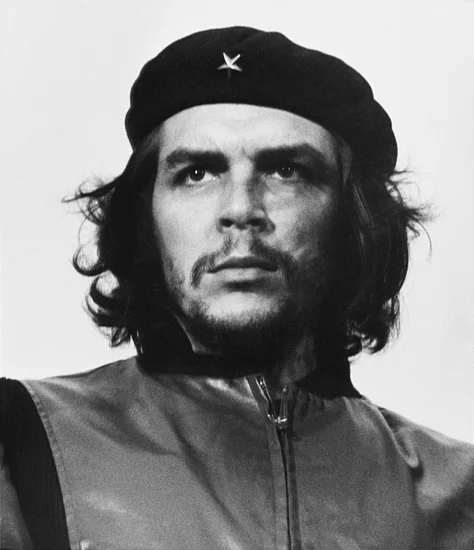
Bolivian forces captured revolutionary leader Che Guevara and his remaining guerrilla fighters in the Bolivian highlands. The capture marked the end of Guevara’s final revolutionary campaign.
Guevara’s detention would lead to his execution the following day, creating a martyr for revolutionary movements worldwide. His capture represented a significant victory for U.S.-backed counterinsurgency efforts in Latin America.
1990 – Temple Mount Violence
Israeli police killed 17 Palestinians and wounded over 100 during violent clashes near the Dome of the Rock. The incident escalated tensions during the First Intifada and shocked the international community.
The violence erupted when Palestinian protesters threw stones at Jewish worshippers at the Western Wall below. The deadly confrontation deepened mistrust between Israelis and Palestinians for years to come.
1969 – Days of Rage Begin
The Weather Underground organized the opening rally of the “Days of Rage” in Chicago, launching their militant anti-war campaign. The radical group sought to bring the Vietnam War’s violence to American streets.
The demonstrations marked a significant escalation in anti-war protest tactics. The Weather Underground’s violent approach alienated many mainstream peace activists while intensifying government surveillance.
Business and Economic Events on October 8
1974 – Franklin National Bank Collapse

Franklin National Bank collapsed due to massive fraud and mismanagement, becoming the largest bank failure in U.S. history at that time. The institution’s downfall shocked the American financial system.
The collapse exposed serious regulatory weaknesses in federal banking oversight. Franklin’s failure prompted significant reforms in banking supervision and deposit insurance coverage.
1956 – Don Larsen’s Perfect Game
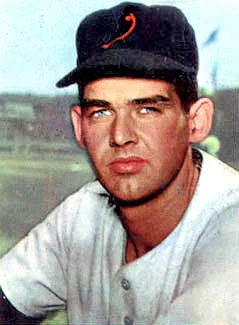
New York Yankees pitcher Don Larsen threw the only perfect game in World Series history. His flawless performance against the Brooklyn Dodgers created one of baseball’s most legendary moments.
Larsen’s achievement captivated the entire nation and elevated the World Series to new heights of excitement. The perfect game remains one of the most celebrated individual performances in sports history.
2016 – Hurricane Matthew Death Toll
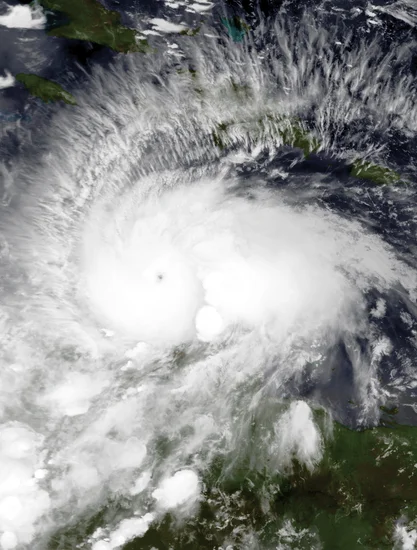
Hurricane Matthew’s death toll reached nearly 900 people as the storm’s devastating impact became clear. The hurricane caused catastrophic damage across Haiti, the Dominican Republic, and the southeastern United States.
The storm’s destruction highlighted the vulnerability of Caribbean nations to extreme weather events. Matthew’s impact prompted renewed discussions about climate change and disaster preparedness.
Transportation and Infrastructure on October 8
1952 – Harrow and Wealdstone Rail Crash

A catastrophic train collision at Harrow and Wealdstone station killed 112 people in Britain’s worst peacetime rail disaster. The morning rush-hour accident involved three trains and caused massive destruction.
The crash prompted immediate improvements in railway safety systems and signaling technology. The disaster led to comprehensive reforms in British rail operations and emergency response procedures.
2001 – Milan Airport Collision
A twin-engine Cessna collided with a Scandinavian Airlines jetliner during takeoff in heavy fog at Milan’s Linate Airport. The devastating accident killed 118 people and raised serious questions about airport safety protocols.
The collision occurred due to poor visibility and inadequate ground radar systems. The tragedy led to significant improvements in airport ground control technology and fog-weather procedures.
1978 – World Water Speed Record
Australian Ken Warby set the current world water speed record of 275.97 knots at Blowering Dam. His jet-powered hydroplane “Spirit of Australia” achieved this incredible speed that still stands today.
Warby’s achievement represented the pinnacle of water speed racing technology and human courage. The record demonstrates the extraordinary engineering capabilities of specialized racing craft.
Sports and Recreation on October 8
1956 – Don Larsen’s Perfect Game

New York Yankees pitcher Don Larsen achieved baseball immortality by throwing the only perfect game in World Series history. His flawless performance against the Brooklyn Dodgers electrified the packed Yankee Stadium crowd.
Larsen’s 97-pitch masterpiece required pinpoint control and nerves of steel on baseball’s biggest stage. The perfect game remains the most celebrated individual pitching performance in World Series history.
1978 – Water Speed Record Achievement
Ken Warby established the world water speed record of 275.97 knots at Blowering Dam in Australia. His specially designed hydroplane “Spirit of Australia” achieved this remarkable speed that remains unbroken decades later.
The record attempt required extraordinary engineering skill and fearless determination. Warby’s achievement represents the absolute limit of human-powered water speed racing.
1921 – First Radio Sports Broadcast

KDKA radio station pioneered sports broadcasting by transmitting the first live football game from Pittsburgh’s Forbes Field. This revolutionary broadcast brought sporting events directly into American homes for the first time.
The transmission launched the modern era of sports media and fan engagement. Radio sports coverage would soon become a cornerstone of American popular culture.
Notable Births on October 8
1920 – Frank Herbert Born
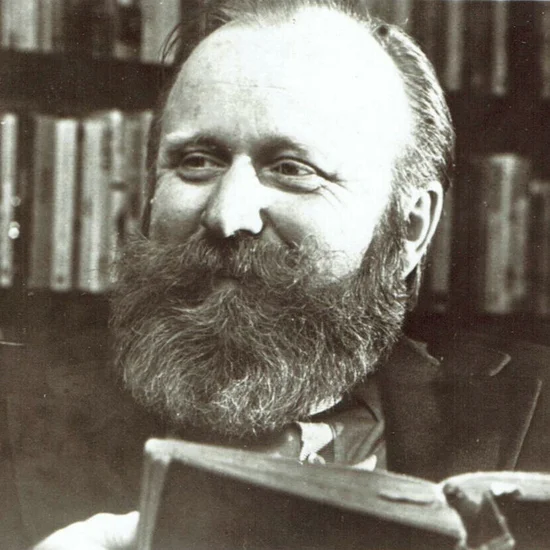
Science fiction author Frank Herbert was born in Tacoma, Washington, beginning a life that would revolutionize the genre. His childhood experiences in the Pacific Northwest shaped his ecological consciousness and storytelling vision.
Herbert would create the epic “Dune” series, establishing one of science fiction’s most influential universes. His works explored complex themes of politics, religion, and environmental stewardship.
1949 – Sigourney Weaver Born

Actress Sigourney Weaver entered the world in New York City, destined to become one of Hollywood’s most iconic performers. Her early theatrical training prepared her for a groundbreaking career in film.
Weaver would later star in the “Alien” franchise, creating one of cinema’s most memorable heroines. Her portrayal of Ellen Ripley redefined female action heroes in popular culture.
1970 – Matt Damon Born

Actor Matt Damon was born in Cambridge, Massachusetts, beginning his journey to Hollywood stardom. His childhood friendship with Ben Affleck would prove crucial to his career development.
Damon would achieve fame through acclaimed performances in films like “Good Will Hunting” and the “Bourne” series. His versatility as an actor and screenwriter established him as a major Hollywood talent.
1985 – Bruno Mars Born

Singer Bruno Mars was born Peter Gene Hernandez in Honolulu, Hawaii, inheriting a rich musical heritage. His multicultural background influenced his diverse musical style and performance energy.
Mars would become one of the most successful recording artists of the 21st century. His blend of pop, funk, and R&B created a distinctive sound that dominated global charts.
1941 – Jesse Jackson Born

Civil rights leader Jesse Jackson was born in Greenville, South Carolina, during the height of segregation. His early experiences with racial discrimination shaped his lifelong commitment to social justice.
Jackson would become one of America’s most prominent civil rights activists and political leaders. His presidential campaigns and advocacy work advanced the cause of equality for all Americans.
Notable Deaths on October 8
1967 – Clement Attlee Dies
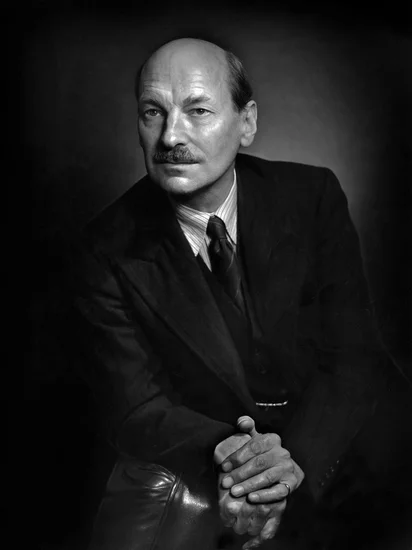
Former British Prime Minister Clement Attlee passed away, ending a distinguished career in public service. His Labour government had transformed Britain through comprehensive social reforms after World War II.
Attlee’s administration created the National Health Service and expanded the welfare state. His leadership helped establish the modern British social democratic system.
1992 – Willy Brandt Dies
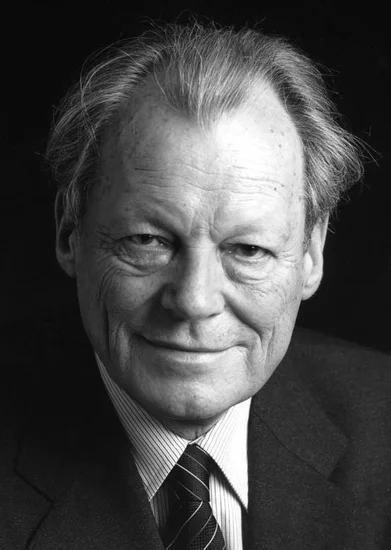
Former West German Chancellor Willy Brandt died, concluding a remarkable political career dedicated to peace and reconciliation. His Ostpolitik policy helped ease Cold War tensions in Europe.
Brandt’s efforts to normalize relations with Eastern Europe earned him the Nobel Peace Prize. His leadership contributed significantly to German reunification and European integration.
2008 – George Emil Palade Dies

Nobel Prize-winning cell biologist George Emil Palade passed away, leaving behind groundbreaking contributions to medical science. His research revolutionized understanding of cellular structure and function.
Palade’s discoveries about ribosomes and protein synthesis earned him the Nobel Prize in Physiology or Medicine. His work laid essential foundations for modern molecular biology.
1945 – Felix Salten Dies

Austrian author Felix Salten died, remembered primarily for creating the beloved character Bambi. His novel “Bambi, A Life in the Woods” became one of the most famous animal stories ever written.
Salten’s work transcended children’s literature to explore themes of nature, survival, and growing up. Disney’s animated adaptation brought his creation to worldwide audiences.
1953 – Kathleen Ferrier Dies
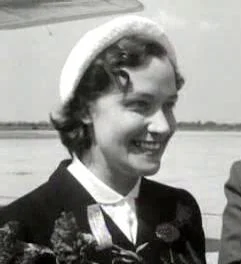
British contralto Kathleen Ferrier passed away at the height of her musical career. Her rich, powerful voice had made her one of the most celebrated singers of her generation.
Ferrier’s performances of Mahler and other classical works set new standards for vocal excellence. Her premature death from cancer robbed the musical world of an extraordinary talent.
Holidays and Observances on October 8
Air Force Day (India)
India celebrates Air Force Day to honor the Indian Air Force and its contributions to national defense. The observance recognizes the bravery and dedication of air force personnel who protect the nation’s skies.
Military demonstrations and aerial displays mark this important national holiday. The celebration strengthens public appreciation for the air force’s vital role in India’s security.
International Lesbian Day
International Lesbian Day promotes visibility and rights for lesbian women worldwide. The observance raises awareness about lesbian issues and celebrates lesbian culture and identity.
Communities organize events and discussions to support lesbian rights and combat discrimination. The day serves as an important platform for advocacy and social progress.
Children’s Day (Iran)

Iran observes Children’s Day to celebrate and protect the rights of children. The holiday emphasizes the importance of children’s welfare and education in Iranian society.
Schools and community organizations host special activities and programs for young people. The observance reinforces Iran’s commitment to children’s development and protection.
